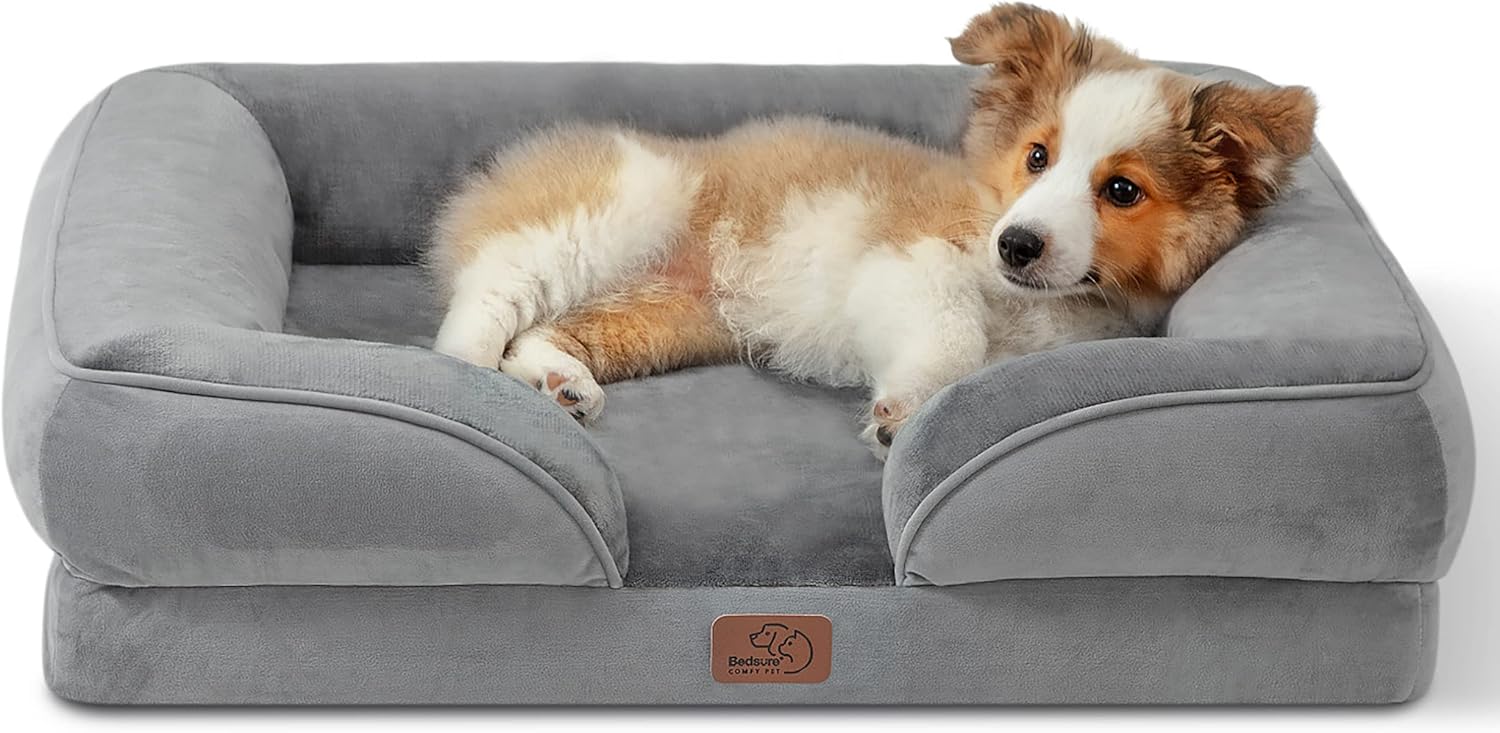Introduction
A brief introduction to Chihuahua Puppies
Chihuahua puppies, the smallest dog breed in the world, are adorable and pint-sized companions known for their expressive eyes and perky ears. Originating from Mexico, these tiny dogs have a larger-than-life personality, confidence, intelligence, and feisty nature. They are suitable for apartment living and can accompany owners on various adventures. Chihuahuas thrive on human companionship and are loyal and devoted to their owners. They come in various coat types, including smooth, long-haired, and a combination of both, and can display various colors and patterns.
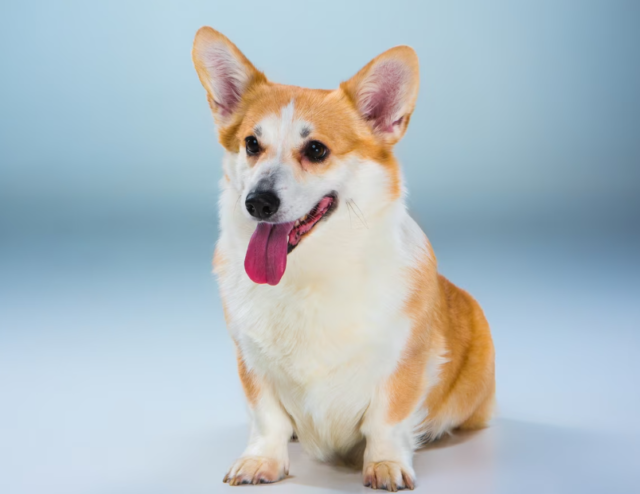
Why Chihuahua puppies are popular as Pets
Chihuahuas are a popular and adorable dog breed due to their small size, lively personality, portability, bonding nature, and adaptability. They are known for their lively personality, playful nature, and portability, making them ideal for apartment living and travel. Chihuahuas are known for their strong bonds with their owners, forming deep connections and developing loyalty. Their versatility makes them suitable for a wide range of owners, including single individuals, couples, and families with children. Their small size allows them to wear cute and fashionable outfits, making them popular among pet lovers who enjoy dressing up their pets.
Chihuahua Puppy Care
Preparing for a Chihuahua Puppy
Considerations before getting a Chihuahua puppy
Before adopting a Chihuahua puppy, it’s crucial to consider its size, fragility, exercise, socialization needs, time, attention, training, housebreaking, grooming needs, and lifespan. Chihuahuas are small and delicate dogs, requiring gentle handling, exercise, and mental stimulation. They require exposure to different environments, people, animals, and situations to develop into well-rounded, confident adult dogs. Time and attention are essential for a Chihuahua puppy’s well-being. Consistent training and guidance are essential, with positive reinforcement methods being effective.
Puppy-proofing your home and environment
To ensure a safe and secure living environment for a Chihuahua puppy, it is essential to remove hazards, secure off-limit areas, store household items safely, secure trash and garbage, protect cords and wires, check for small spaces, anchor furniture and appliances, install childproof latches, and check for toxic plants. By following these steps, you can create a safe space for your Chihuahua puppy to explore, play, and grow without unnecessary risks. Regularly reassess your home for any new hazards as your puppy grows and adjust accordingly. Prevention is key to keeping your Chihuahua puppy safe and happy in their new home.
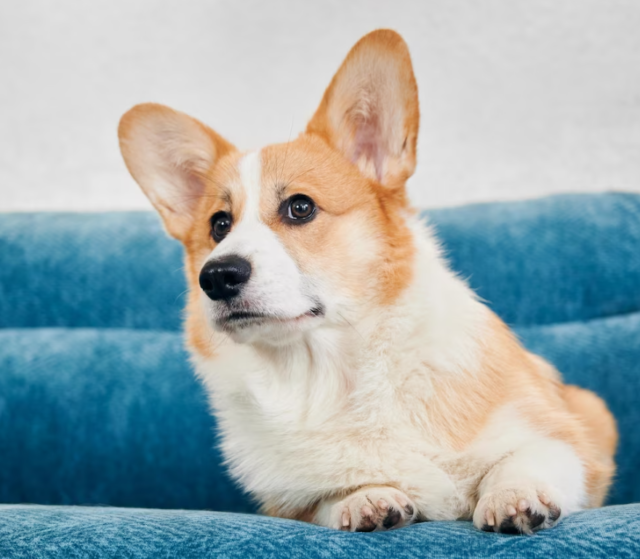
Health and Veterinary Care
Common health issues and Concerns for Chihuahuas
Chihuahuas are known for their health issues and concerns, including dental problems, hypoglycemia, patellar luxation, heart murmurs, collapsing trachea, eye problems, obesity, allergies, luxating patella, and shivering and cold sensitivity. Regular dental care, exercise, proper dental care, and attention to overall well-being are crucial for Chihuahuas’ well-being. Regular veterinary check-ups, a nutritious diet, exercise, proper dental care, and attention to overall well-being are essential for promoting the health and longevity of your Chihuahua. By being aware of these health issues and concerns, you can take proactive measures to ensure your Chihuahua’s well-being and provide them with the necessary care.
Vaccination schedule and regular veterinary check-ups
Chihuahua puppies require a series of vaccinations to protect them against various infectious diseases. These core vaccinations include Distemper, Parvovirus, Canine Hepatitis, and Rabies. Initial vaccinations are given around 6-8 weeks of age, followed by booster shots every 3-4 weeks until 16 weeks old. Annual vaccinations are required after the initial series, with frequency based on the veterinarian’s recommendations and the prevalence of specific diseases in the area. Regular veterinary check-ups are essential for monitoring the Chihuahua’s overall health and addressing any concerns or potential issues.
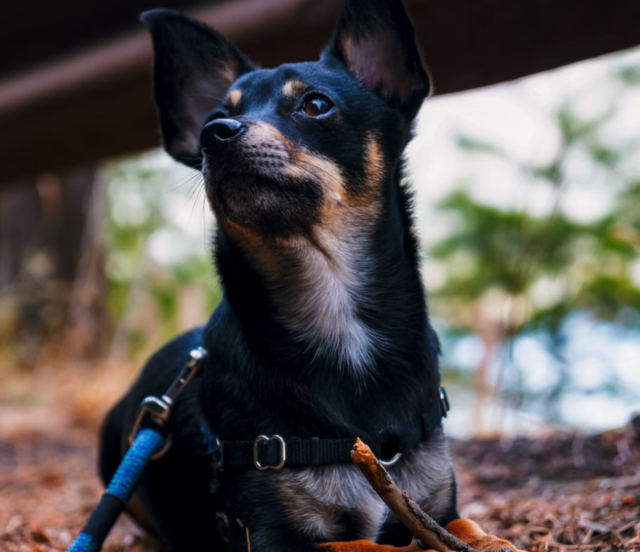
Feeding and Nutrition
Appropriate diet and nutrition for Chihuahua puppies
A well-balanced diet is crucial for the healthy growth and development of Chihuahua puppies. A premium-quality puppy food, formulated for small breeds, meets nutritional requirements set by recognized organizations like the Association of American Feed Control Officials (AAFCO). High-quality protein is essential for muscle development and overall growth. Healthy fats, such as omega-3 fatty acids, support brain development and promote healthy skin and coat. Chihuahua puppies have small stomachs and high metabolic rates, so it’s best to feed them small, frequent meals throughout the day to prevent overeating and maintain stable blood sugar levels.
Feeding schedule and portion control
A feeding schedule and portion control are crucial for Chihuahua puppy care. A well-regulated feeding routine and appropriate portion sizes help maintain a healthy weight, prevent overeating, and promote optimal growth. For puppies up to six months old, provide three to four meals daily, gradually transitioning to two meals per day after six months. Consistency in meal times helps maintain a routine and aids digestion. Adjust portion sizes based on age, weight, activity level, and overall health.
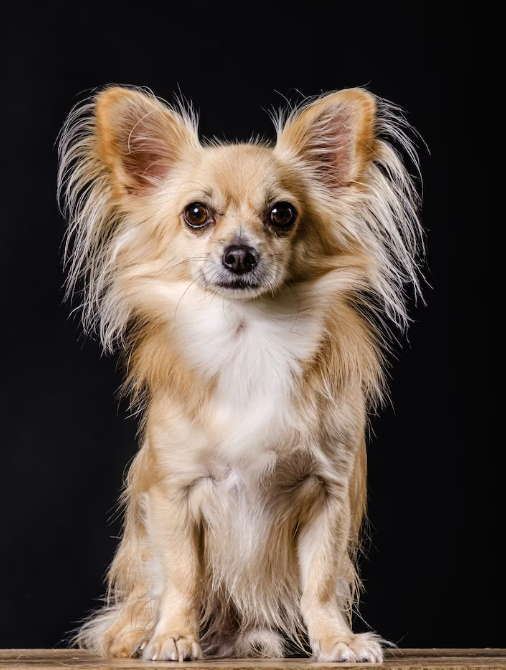
Training and Socialization
Basic training tips for Chihuahua puppies
Training a Chihuahua puppy is essential for its well-behaved and happy companion. Use positive reinforcement, keep sessions brief, and maintain consistency in training methods. Socialize the puppy early, introduce leash training, provide a safe space, schedule potty breaks and outdoor playtime, avoid harsh punishments, enroll in positive reinforcement-based training classes, and establish a strong bond with the puppy. By following these tips, you can create a loving and trusting companion for your Chihuahua puppy.
Introducing other animals and people to your Chihuahua
Socializing your Chihuahua puppy is crucial for their emotional development and well-being. Start early, create positive experiences, expose them to new environments, invite friends, supervising playdates, associate vet visits with positive experiences, enroll in training classes, remain calm, use desensitization techniques, monitor body language, and be patient. This helps develop a well-adjusted and confident Chihuahua companion.
Grooming and Hygiene
Proper grooming techniques for Chihuahua Puppies
Regular grooming is essential for maintaining the health and appearance of your Chihuahua puppy. Brushing the coat once a week removes loose hair, prevents matting, and stimulates the skin. Bathing every 4-6 weeks or as needed is recommended. Regular ear cleaning, nail trimming, dental hygiene, eye care, anal gland care, and paw care are also crucial. Professional grooming is recommended every few months for a calm and gentle approach. Regular grooming not only keeps your Chihuahua looking their best but also helps you bond with them and keep them comfortable and healthy.
Nail trimming, brushing, and bathing guidelines
Nail trimming, brushing, and bathing are crucial for maintaining a Chihuahua puppy’s cleanliness and comfort. Use a guillotine-style clipper, gradually trim sensitive nails, reward with treats, brush with dog-specific shampoo, and create a positive association with bathing. Adapt the grooming routine to suit your puppy’s individual needs for overall health and well-being.
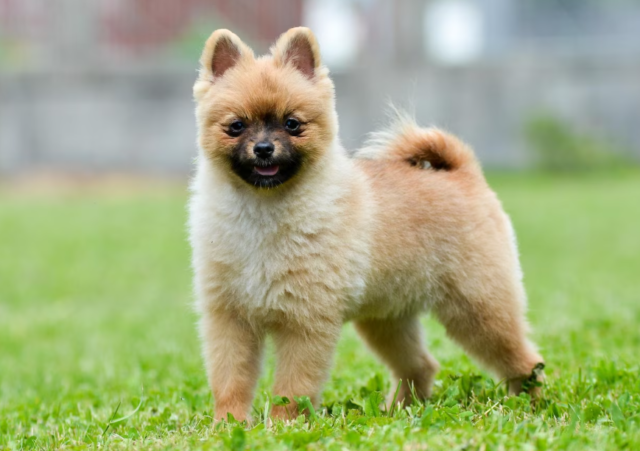
Exercise and Playtime
Exercise Requirements for Chihuahua Puppies
Chihuahua puppies need regular exercise to maintain a healthy weight, stimulate their mind, and prevent behavioral issues. Adopt short walks, interactive playtime, indoor activities, socialization, supervised off-leash time, training, and monitoring energy levels. Adjust exercise to meet extreme temperatures and provide fresh water and breaks. This leads to a happy, healthy lifestyle, exhibiting good behavior, reducing behavioral issues, and developing into a well-rounded adult Chihuahua.
Engaging in activities and games for mental stimulation
Mental stimulation is crucial for the well-being of Chihuahua puppies, as they thrive on mental challenges and need it to prevent boredom and destructive behavior. Activities like puzzle toys, hide and seek, training sessions, scent work, interactive playtime, agility exercises, rotating toys, and positive socialization stimulate problem-solving skills, enhance scent work abilities, and prevent boredom. Regular rotation of toys and activities ensures a happy and well-rounded companion.
Chihuahua Puppy Behavior and Temperament
Understanding the behavior and temperament of Chihuahua puppies
Understanding Chihuahua puppies‘ behavior and temperament is crucial for providing appropriate care and training. These small dogs have unique traits like confidence, loyalty, intelligence, alertness, and watchdog instincts. They thrive on human companionship and are sensitive to cold and heat. Proper socialization, positive reinforcement training, consistency, and patience are essential for well-behaved adult Chihuahuas.
How to handle separation anxiety and excessive barking
To reduce separation anxiety in Chihuahua puppies, gradually desensitize, establish a routine, provide a safe space, calm departures, and arrivals, counter-condition, leave distractions, train, socialize, consider calming aids, and consult a professional. This will help the puppy become more comfortable with separations and reduce excessive barking.
Chihuahua Puppies Adoption and Rescue
Adopting a Chihuahua puppy from a shelter or rescue organization
Adopting a Chihuahua puppy from a shelter or rescue organization offers numerous benefits, including saving lives, providing a safe environment, offering various choices, being more cost-effective, receiving post-adoption support, and promoting ethical practices. Research shelters and rescue organizations to learn about available puppies and their specific needs. Adopting a Chihuahua puppy positively impacts their life and fosters a loving companion.
The benefits of adopting a rescued Chihuahua
Adopting a rescued Chihuahua offers numerous benefits, including saving lives, fostering loyalty, pre-screened health, reducing puppy stages, providing support, and promoting responsible pet ownership. Rescue organizations offer training, behavior, and integration advice, ensuring a smooth transition and promoting animal welfare.
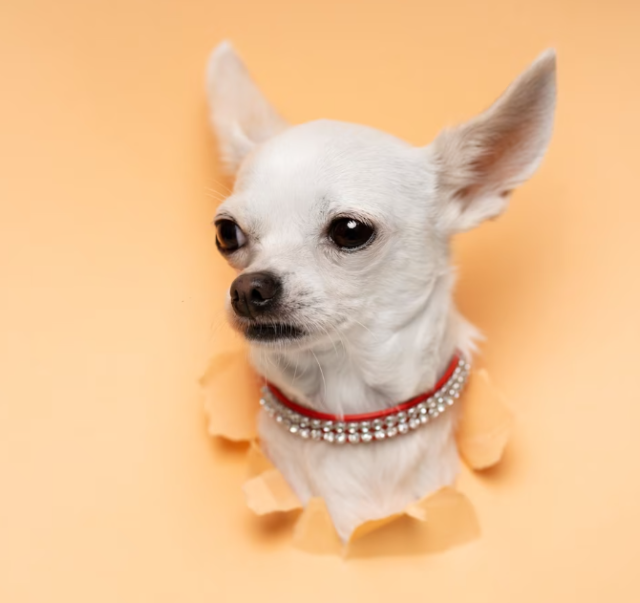
Chihuahua Puppies Breeding and Reproduction
Responsible breeding practices for Chihuahuas
Responsible breeding practices for Chihuahuas are essential for their health and well-being. To ensure ethical practices, conduct health tests, select suitable breeding pairs, allow Chihuahuas to reach maturity, provide a nurturing environment, educate potential owners, establish clear agreements with buyers, and network with experienced breeders. This prioritizes the health, temperament, and welfare of Chihuahuas, avoiding overpopulation and contributing to the community’s well-being.
The process of breeding and caring for Chihuahua puppies
Breeding and caring for Chihuahua puppies require careful planning, attention to detail, and commitment to their well-being. It involves selecting breeding pairs, adjusting timing, mating, gestation, whelping, newborn care, healthcare, finding suitable homes, and post-placement support. Prioritizing the dogs’ health, well-being, and breed preservation is crucial throughout the process.
Chihuahua Breeds and Varieties
Different types and variations of Chihuahuas
Chihuahuas come in various types and variations, each with unique characteristics. The most common is the Smooth Coat Chihuahua, with a short, sleek coat that requires minimal grooming. Long Coat Chihuahuas have a luxurious, flowing coat, while Apple Head Chihuahuas have a rounded skull shape. Deer Head Chihuahuas have a deer-like head shape, while Fawn Chihuahuas have light brown or tan coat with white markings. Merle Chihuahuas have a unique pattern with patches of colors.
Descriptions and characteristics of each breed
Chihuahuas are small dogs with lively personalities and distinctive features. They come in four breeds: Smooth Coat, Long Coat, Apple Head, Deer Head, Fawn Chihuahua, and Merle Chihuahua. Smooth Coats have a short, sleek coat, while Long Coats have luxurious, flowing coat. Apple Head Chihuahuas have a rounded skull shape, expressive eyes, and a prominent forehead. Fawn Chihuahuas have a light brown or tan coat, while Merle Chihuahuas have a unique coat pattern.
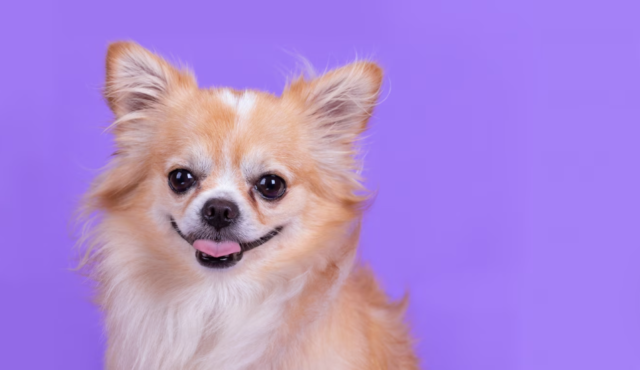
Chihuahua Puppies Accessories and Supplies
Essential accessories and supplies for Chihuahua puppies
To ensure your Chihuahua puppy’s safety and well-being, provide essential accessories like a collar, leash, harness, crates, carriers, bedding, toys, grooming supplies, healthcare essentials, identification tags, and microchips. These items provide a secure, comfortable, and enjoyable environment for your puppy.
Collars, leashes, crates, and toys
Chihuahua puppies need a well-fitting collar, leash, crates, and toys for safety during walks and outdoor activities. Collars should be lightweight, comfortable, and adjustable, leashes should be lightweight and easy to handle, crates provide a secure space, and toys should be safe and durable. Regular supervision and inspection are crucial for maintaining safety.
Chihuahua Puppies Training Resources
Recommended books, websites, and videos for Chihuahua puppies training
Chihuahua puppy training can be helpful with resources like “The Chihuahua Handbook” and “Chihuahuas For Dummies.” The American Kennel Club and Chihuahua Club of America offer breed-specific information. Positive reinforcement techniques are recommended. Consult a professional or enroll in puppy training classes for tailored guidance.
Training courses and classes for Chihuahua owners
Chihuahua owners can find structured training courses like puppy kindergarten, basic obedience, small breed training, trick training, and agility classes. Puppy kindergarten focuses on socialization, obedience, and positive reinforcement, while small-breed training caters to unique dog characteristics. Trick training strengthens bonds and promotes coordination. Choose certified trainers with experience and consider facility reputation, class sizes, and reviews.
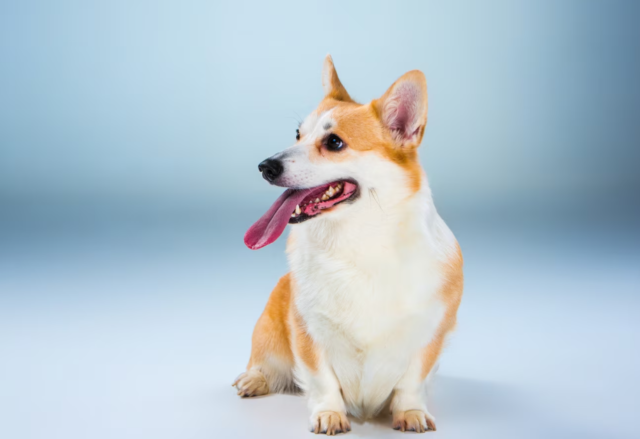
Chihuahua Puppy Myths and Misconceptions
Addressing common myths and misconceptions about Chihuahua puppies
Chihuahua puppies face misconceptions about their small size and unique appearance. However, they can be friendly, well-behaved, and loving companions with proper socialization and training. They require moderate exercise through walks, interactive play, and mental stimulation. Responsible breeding, veterinary care, and a healthy lifestyle contribute to their well-being. Regular brushing, nail trimming, and occasional bathing are sufficient. Approaching each dog as an individual is crucial for raising a well-adjusted and happy puppy.
Separating fact from fiction
Misconceptions about Chihuahua puppies include being delicate, yappy, and difficult to train. However, Chihuahuas are intelligent, adaptable, and thrive with proper socialization and training. They thrive in households with children and can live harmoniously with other pets.
History and Origin
The History and Origin of Chihuahua Puppies
Chihuahua puppies’ origins can be traced back to Mexico, specifically Chihuahua state. They may be descendants of the Techichi or Chinese Crested dog, brought by Spanish traders. Popularized in the late 19th century, they are beloved companions and pets worldwide for their lively nature.
Ancient civilizations and their association with Chihuahuas
Chihuahuas are a breed of small companion dogs with a deep connection to ancient civilizations like the Toltec and Aztec cultures in Mexico. These cultures held a special reverence for these dogs, believed to have mystical powers, good fortune, and protection. Today, Chihuahuas are cherished pets reflecting their historical connection to these cultures and the enduring bond between humans and these delightful dogs.
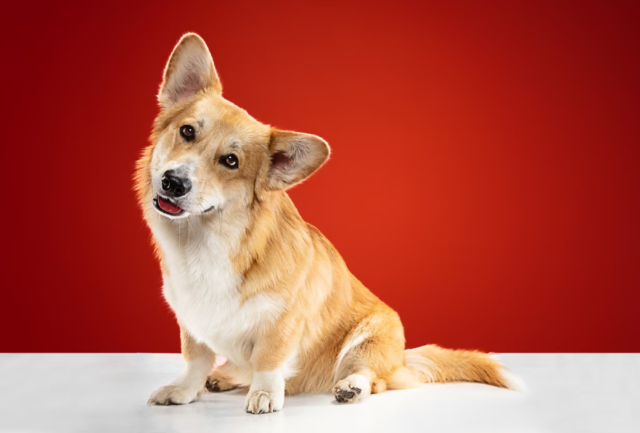
Conclusion
Chihuahua puppies are beloved pets due to their small size, unique appearance, and lively personalities. They require attention, care, and socialization for well-being. Regular veterinary check-ups, exercise, and a balanced diet are essential for their health. Chihuahua’s rich history and cultural associations add to their appeal. Adopted from shelters or responsible breeders, they bring joy and companionship. By providing love, care, and a nurturing environment, owners can create lasting bonds with these loyal, intelligent, and spirited companions.
Essential Products to Keep Your Chihuahua Puppies Happy and Healthy
FAQs
Q1: How long do Chihuahua puppies live?
Compared to larger dog breeds, chihuahuas live comparatively lengthy lives. On average, Chihuahua puppies can live between 12 and 20 years, depending on various factors such as genetics, overall health, and quality of care provided.
Q2: Are Chihuahuas good with children?
Chihuahuas can be good with children when properly socialized and introduced to them from an early age. However, due to their small size, it's crucial to supervise interactions to ensure the safety of both the Chihuahua and the child. Teaching children to handle the dog gently and respectfully is important to maintain a harmonious relationship.
Q3: Do Chihuahuas require a lot of exercises?
Chihuahuas are active little dogs, but their exercise needs can be met with moderate daily activities. They benefit from short walks, indoor playtime, and mentally stimulating games. While they don't require excessive exercise, it's important to provide them with regular opportunities to burn off energy and engage in appropriate physical activities.
Q4: How often should I groom my Chihuahua puppy?
Chihuahuas have different coat types, including short-haired and long-haired varieties. Short-haired Chihuahuas typically require minimal grooming, such as brushing once a week and occasional baths. Long-haired Chihuahuas may need more frequent brushing to prevent tangles and mats. Regular nail trims, teeth brushing, and ear cleaning should also be a part of their grooming routine.
Q5: Can Chihuahuas be left alone for long periods?
Chihuahuas are social dogs and generally prefer the company of their owners. Leaving them alone for long periods can lead to separation anxiety and other behavioral issues. If you need to leave your Chihuahua alone, it's important to gradually acclimate them to alone time and provide them with toys, comfort, and a safe space. Consider a dog sitter or doggy daycare if extended periods alone are unavoidable.
Q6: Are Chihuahuas aggressive by nature?
Chihuahuas, like any dog breed, can display aggression if not properly trained and socialized. While some Chihuahuas may be more prone to assertiveness or protective behavior, proper socialization from an early age and positive training techniques can help prevent aggression issues. It's important to provide consistent guidance, establish boundaries, and expose them to various people, animals, and environments to foster a well-rounded and friendly temperament.
Q7: What should I consider before breeding Chihuahua puppies?
Breeding Chihuahuas should be approached responsibly. It's essential to have a thorough understanding of the breed, including genetics, health conditions, and proper breeding practices. Consider the time, effort, and resources required for responsible breeding, including pre-breeding health screenings, care for the dam and puppies, finding suitable homes for the offspring, and commitment to breeding improvement rather than solely financial gain.
Q8: Are Chihuahuas prone to any specific health conditions?
Chihuahuas can be prone to certain health conditions, including dental issues, patellar luxation, heart problems, and hypoglycemia. Regular veterinarian check-ups, a healthy diet, good oral hygiene, and suitable exercise can reduce these hazards. Responsible breeders prioritize health screenings and breeding for overall well-being.
Q9: Can I train my Chihuahua puppy at home?
Yes, Chihuahuas are trainable and can be successfully trained at home. Positive reinforcement techniques, consistency, patience, and early socialization are key to their training. Start with basic obedience commands and gradually progress to more advanced training. If needed, consider enrolling in puppy training classes or working with a professional dog trainer to enhance the training experience.
Q10: What are the benefits of adopting a Chihuahua from a rescue?
Adopting a Chihuahua from a rescue organization offers several benefits. Firstly, it provides a loving home to a dog in need. Many rescued Chihuahuas are already socialized, house-trained, and may have basic obedience skills. Additionally, adopting from a rescue allows you to support the mission of animal welfare organizations and potentially save a life. Rescue organizations often provide necessary veterinary care and ensure the dogs are healthy before adoption. Adopting a rescue Chihuahua can be a rewarding experience and bring immense joy to both the dog and the owner.
Read also
- Exploring the Best Wet Dog Food for Your Canine Companion
- Top 10 Best Dog Brushes for Shedding and Grooming | Comparison & Reviews
- Best Dog Food for French Bulldogs: Secrets Revealed
- Dog Food Storage Container: Keeping Your Pet’s Meals Fresh and Organized
- Puppy Barking: Understanding and Managing Your Furry Friend’s Vocalizations
- Stop Your Dog’s Raw Skin Issues with Effective Chewing Treatment
- Unveiling the Alluring Sandlot Dog Breed: A Perfect Blend of Charm and Playfulness
- Avoid Common Mistakes in Puppy Crate Training!
- Unraveling Shiba Inu Mixes: Discover Canine Crossbreeds
- Best Dog Food for Pitbulls: Fueling Your Canine Athlete
- Corgi vs Shiba Inu – Which Breed Is Right for You?
- Unveiling the Charms of Chug Dog Breed: A Perfect Blend of Cuteness and Companionship
- Tuffy Dog Toys – Durable, Fun & Safe for Your Pooch
- Discover the Best Dog Food for German Shepherd Puppy: Unveiling the Ultimate Guide!
- Italian Greyhound Mix Chihuahua New Breed Info & Care [2023]
- Discover the Enchanting Teddy Bear Dog Breed: A Perfect Companion for All Ages
- Dog Muzzle for Barking: Control Excessive Noise with Effective Muzzles
- The Shiba Inu Pitbull Mix: A Fascinating Crossbreed
- Stop Dog Barking: Effective Techniques to Prevent Barking at Other Dogs
- Dog Supplements for Homemade Dog Food And Nutritions



